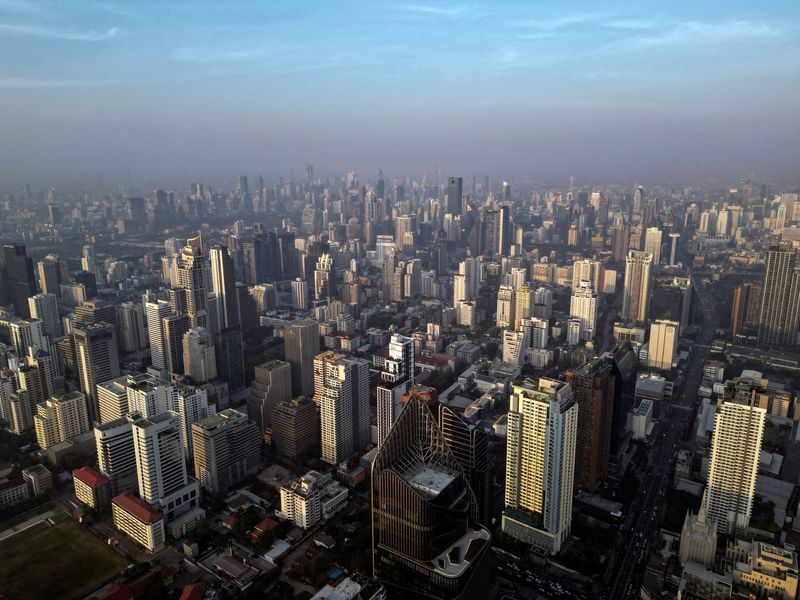By Orathai Sriring and Kitiphong Thaichareon
BANGKOK (Reuters) - Thailand's economy is on a solid path to recovery and showing resiliency, helped by good revenue collection and a normalisation of its tourism sector, while inflation should come in below 3% this year, its finance minister said on Monday.
Southeast Asia's second-largest economy expanded faster than expected in the first quarter of this year due to a revival in its vital tourism sector.
The economic recovery has been supported by a comprehensive and timely policy mix of fiscal and monetary policies, which respectively should continue to be implemented proactively and prudently, Arkhom Termpittayapaisith told a World Bank forum.
While predicting inflation would come in below 3% this year, inside the central bank target range of 1% to 3%, Arkhom said he could not tell whether there would be a reduced need for raising interest rates.
"There is still uncertainty over energy prices and U.S. issues," he told reporters on the sidelines.
The central bank is expected to raise its key rate again by a quarter point to 2.0% on Wednesday before holding it steady through 2024, a Reuters poll showed.
On Monday, the finance ministry in a statement said the economy in April was supported by stronger tourism, higher farm production and falling inflation, while Thailand was well-positioned to withstand global volatility.
Arkhom said revenue collection also showed strong signs of recovery in the 2022 fiscal year and was expected to surpass the pre-pandemic level in the 2023 fiscal year.
"I'm confident that Thailand is firmly heading towards full recovery and soon return to its vibrant economy," he added.
The finance ministry forecast economic growth of 3.6% this year, after a 2.6% expansion last year.

The World Bank in a statement on Monday said Thailand now needed to address growing spending needs, while keeping public debt under control.
Thailand's public debt rose due to the pandemic response, but overall fiscal risks remain manageable, the bank said.